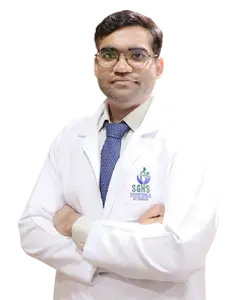World Class Care for Heart Attack
We are amongst the most advanced institutes for heart attack treatment in North India. Complete cardiac diagnostics to timely identify heart attack symptoms, led by a team of highly experienced heart specialists for all cardiac emergencies.
Call Now Book An Appointment17000+
Successful Stenting Procedures
30+
Years Experience
25,000+
Patients Treated











